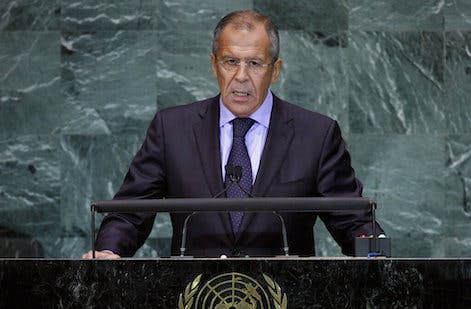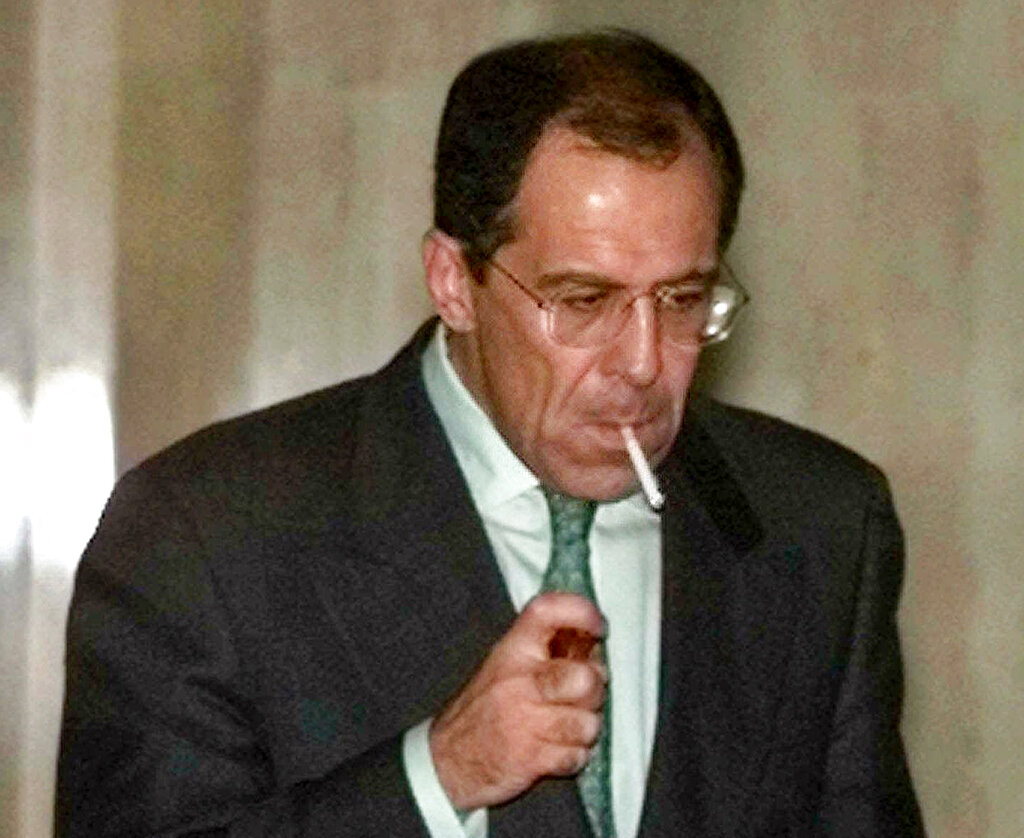How Sergei Lavrov Has Become a Widely Despised Figure
It wasn’t always so. Lavrov once knew how to balance his combative patriotism with collegiate charm.

How the mighty have fallen. Russia’s foreign minister, Sergei Lavrov — once a widely admired, suave, smart, and even-keeled diplomat — is now for the most part despised, his public appearances increasingly unhinged.
As Moscow’s ambassador at the United Nations between 1994 and 2004, the sometime prickly but always charming Mr. Lavrov rose to be one of the most respected diplomats at Turtle Bay, as the U.N. headquarters on the East River is known.
Leading a group of countries opposing the American-led moves leading up to 2003 war in Iraq, Mr. Lavrov influenced like-minded countries, such as France, and helped convince the U.N.’s secretary-general, Kofi Annan, to declare the war “illegal.” His most formidable opponents appreciated, even admired, his savvy diplomatic prowess.
Isolated in Moscow now, Mr. Lavrov is sanctioned by Washington and the European Union. Even the once-famously neutral keeper of banking secrecy, Switzerland, this week broke away from its previous ban on sanctions and froze Mr. Lavrov’s assets.
Barred from flying to Geneva for a U.N. human rights council session, the Russian diplomat delivered a speech this week via video link. More than a hundred diplomats walked out on him in disgust — a protest once reserved for world pariahs of Muammar Gadhafi’s ilk.
It wasn’t always so. Mr. Lavrov once knew how to balance his combative patriotism with collegiate charm. United Nations reporters grew accustomed to being pilloried by him publicly, while chumming with the friendly man in private affairs.
During press conferences Mr. Lavrov would acidly correct a premise of a reporter’s question or belittle him. When I once told him his style reminded me of that of Defense Secretary Rumsfeld, he frowned, but then flashed a rare smile of understanding.
Privately, Mr. Lavrov would spin tales of his youth as a semi-pro soccer player or his annual summer vacations away from the U.N., in Siberia, where along with childhood buddies he would go whitewater rafting.
Mr. Lavrov’s fondness for cigarettes and Johnny Walker Black Label whiskey was famous around the building. In the early morning he would often be seen at the delegates’ lounge lovingly attending to each component of his breakfast of champions — an espresso, a shot of Johnny Walker Black, a cigarette, and a cellphone.

In the leadup to the Iraq war, the Security Council would often meet in the evenings. At the time there was a small bar adjacent to the council’s room, and Mr. Lavrov, all alone, would pop out of the closed-door negotiations every 20 minutes or so for a shot.
To a reporter, such incursions seemed like a great occasion to ask the diplomat for information, and Mr. Lavrov would often oblige. Yet, regardless of the amount of whiskey in him, he was always in full control, his leaks well-targeted and smartly designed to advance his agenda.
Publicly defying Mr. Annan’s ban on smoking at the U.N. headquarters, Mr. Lavrov would light up everywhere, leading a group of smokers in a revolt against the restriction. That resurgence died soon after Mr. Lavrov left Turtle Bay for Moscow.
At Turtle Bay, Mr. Lavrov was always in command of both the big picture and the nuanced details, peppering his arguments with what’s known at Turtle Bay as international law. Now, at the age of 71, he’s evidently decided to have done with such niceties, throwing around lines like, in describing the Ukraine war, “As in Hollywood, there is absolute evil and absolute good and this is unfortunate.”
During a press conference this week, Mr. Lavrov said, “Napoleon and Hitler, they had the objective to have the whole of Europe under their control. Now Americans have got Europe under their control.”
Addressing sanctions against him, Mr. Lavrov appeared to threaten the nuclear option. President Biden, he contended, “said the only alternative [to sanctions| is World War III. And everyone had the sense it can only be a nuclear war.”
Asked how the Kremlin can accuse Ukrainian president — a decendant of Jewish Holocaust victims — of leading a Nazi government, Mr. Lavrov said, “It’s very difficult for me to explain how Zelensky can be chairman in a society where Nazis are flourishing.”
Former colleagues now fret that Mr. Lavrov, a once-sophisticated, much-admired statesman, is a top player in the dangerous inner circle of President Putin’s war machine.
A former Russian foreign minister, Andrei Kuzyrev, this week posted on Twitter an old picture with his once-underling, writing, “Lavrov, rightfully sanctioned by the US and EU today, was my deputy in the 90s. Used to have my back. Today, I would watch my back if he was behind me.”
At the Security Council today, the Ukrainian ambassador, Sergeiy Kyslytsya, turned to his Russian colleague, Vitaly Nebenzya. You know, he said, “Satan was also an angel, an angel who rebelled against God.” He might as well have addressed Mr. Nebenzya’s predecessor and current boss.

